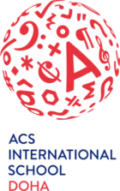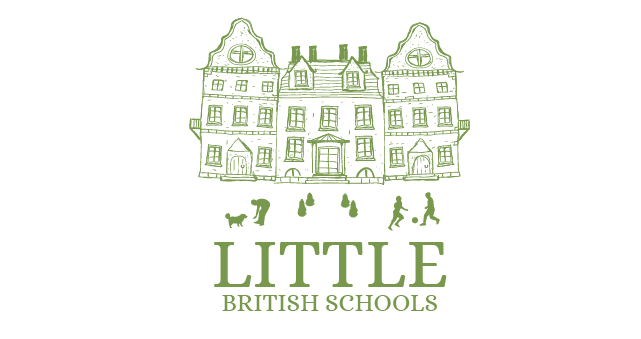Our programs are defined by an actionable question which primarily represents one particular local issue which might fall under one or more SDGs.
These programs are designed to instigate a collaborative culture of learning, taking ownership, and problem solving to generate a pathway to SDGs.
Thoughts
During the 2020 - 2021 and the 2021 - 2022 school year, students from the American School of The Hague participated in the Bardia extracurricular program organized by Mr. Manoj Gautam and Schools for SDG. The program allows students aged 14 to 18 years old to explore SDG 15 Life on Land and participate in an in-depth study of challenges and opportunities related to conservation efforts in the local context of Bardia National Park. In addition, it allowed our students to partner with experts on the ground in Nepal while discussing and planning actionable, realistic interventions to address the issue.
The whole program was managed extremely well by Schools for SDG: from the early stages of designing a program that meets our (time and educational) needs to the development of high quality inquiry materials and the creation of ongoing engaging learning experiences for the students. We were most impressed by and appreciative of the flexibility the team showed at every stage in the program as we all tried to navigate schedules and online meetings with people in different time zones. The guidance and support provided to the learners was excellent and learners greatly benefitted from the opportunity to connect with and learn from such a stellar team of professionals who not only inspired them to take action on the issue, but also respected them as partners on this journey.
Based on the experience of piloting this program during the past two years, we look forward to further fine tuning our approach in the coming years and expand our offerings to include additional SDG issues. Any organization that has the opportunity to work with Manoj and Schools for SDG would be very fortunate to work with such a dedicated, responsible, reliable, caring, and conscientious team and I would recommend Schools for SDG without hesitation.

The program that ASD students were engaged with was based on the curriculum SDGs for Schools created to explore issues surrounding conservation and poaching in Bardia National Park (Life on Land) and the social issues surrounding menstrual hygiene in Nepal (Good Health and Wellbeing, and Gender Equality). SDGs for schools quickly adapted its curriculum to fit ASD’s needs and were able to create an interactive and engaging bespoke Speaker Series of four sessions for both topics. At ASD, all of our Service Clubs/Projects must be aligned to at least one UN SDG and in addition to direct service, student groups must demonstrate active learning about the issues related to their service before credit can be granted for graduation or CAS requirements. It is here where SDGs for Schools aligned closely with ASD’s needs.
Both programs highly engaged our students, taking the form of Zoom conversations with key stakeholders on the ground in Nepal. Like most international schools, prior to the Pandemic, ASD had a very active service learning and study travel program where we take students into the field to engage with and learn about critical global issues in context. Connecting students with community stakeholders in real time, came as close as possible to replicating the on the ground experience. I can report from student reflections that these were impactful and the breadth of the guest speakers’ backgrounds was impressive. One of the most impactful guest speakers was a former poacher turned active police informant who gave students an in-depth and first hand account of why people turn to poaching and how community engagement efforts can effectively draw people away from that illegal trade. It should be noted, that a meeting of this sort would not have been possible on the ground, as the speaker was an active informant and this is just one example of how SDG for Schools’ online platform has leveraged every advantage possible.
It should also be noted, that the technological challenges of operating in the field – often times our sessions are conducted through Zoom on a mobile app – SDG for Schools has never had a session postponed or cancelled due to technology. An impressive feat considering that sessions included everything from interviews at night time in Nepal to a virtual safari in Bardia National Park. All of these experiences have truly engaged our students in these global issues, highlighted through the UN SDG lens and is the exemplar of how we need to be approaching humane education and service learning.
For scale, the two programs that SDG for Schools ran for ASD supported our extracurricular service clubs (each aligned to one UN SDG) and there are discussions to expand the same model, working with SDG for Schools to a grade level class to create a common learning experience for a year cohort.
I would whole-heartedly recommend SDG for Schools for this Award as it would highlight and raise the profile of a project and group that truly embodies and excels in best practice in humane education and service learning.

As an educator, I am constantly looking for innovative ways to bring the real world into the classroom. This became even more essential when the Covid 19 pandemic struck and isolated learners to the four walls of their bedroom.
Schools for Sustainable Development Goals (SSDGs) enabled my high school students to connect and engage with a rural Nepali community and to see beyond the restrictions imposed by the pandemic. They became aware of their own privilege as they sought to understand and learn alongside a community they had only met virtually. Furthermore, it proved that service-learning projects and inquiry-based learning can succeed when embracing cutting-edge technology alongside an ethical framework for action.
My students critically engaged with the complexities associated with the erosion of the Karnali river bank and the menstrual taboos/ WASH access for girls in Bardia. As such, they realized that there was no ‘quick fix’ and that the issue is multifaceted. Frustration and a ‘fail forward’ approach made them re-evaluate the complicated dynamics at play. Similarly, they began to realize the interconnectedness of the SDGs as they began to scratch beneath the surface. This approach to learning is innovative, moving away from pedagogy towards heutagogy.
Connecting to others through the SDGs is fundamental if we are to achieve the aspirational global targets by 2030. As the world confronts multiple challenges, a programme and partnership with SSDGs is pioneering the way for a deeper connection through the human experience of storytelling. Above all, SSDGs facilitates a meeting of two communities, to illuminate the challenges we all face and work together to try and resolve them.
Finally, the most truthful reflection was by one of the students: ‘One thing to always remember is that the best way to find solutions is to work together instead of doing what is best for us as individuals. Individual actions will only work in the short term and will always end up against us as our society will run into problems that will affect us all.

